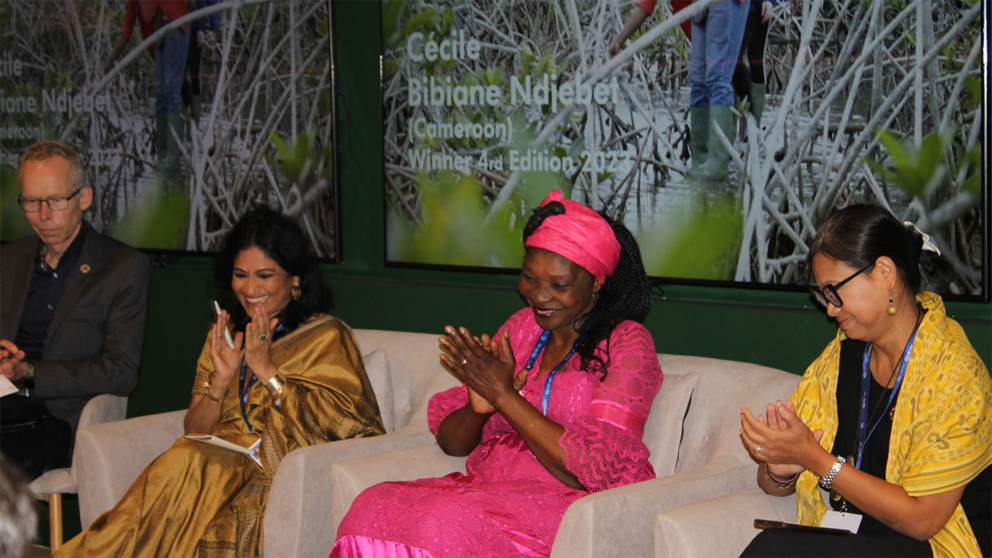How can climate action inspire hope?

At COP28, the Foundation hosted an event with Gulbenkian Prize for Humanity winners and jury members, at the invitation of the Portuguese government’s Ministry for Environment and Climate Action, to explore why we should remain hopeful in the face of climate change.
The panel comprised of jury members Johan Rockström and Runa Khan, and Prize 2023 winners Cécile Bibiane Ndjebet, campaigner and agronomist from Cameroon, and Yani Saloh, representative of the Sungai Utik indigenous community in Borneo, Indonesia. The Sungai Utik leader, Bandi Apai Janggut, was named a joint winner of the Prize in 2023, alongside Cécile and Lélia Wanick Salgado. The winners were selected for their dedication over decades to restoring vital ecosystems in the Global South and protecting land with and for the benefit of their local communities. Cécile and Yani shared stories about their work and how the Prize funding will be used in Cameroon and Indonesia to restore mangroves and rainforests, upskill women and local families, and support a sustainable livelihood for the indigenous Bornean community. Jury members provided insight into why the winners were selected. They highlighted the importance of local climate action that can be replicated in other contexts, and the need for supportive national and global policies that protect nature, cut emissions and support communities.
“We need to connect the bottom-up with the top-down. So, we need all the drive from below – innovations, civil society, community rising – but at the same time recognise that we need to expect leadership from above as well… So that initiatives on the ground can thrive.”
— Johan Rockström, Director of the Potsdam Climate Impact Research Institute and Prize Jury Member
The Gulbenkian Prize for Humanity awards 1 million euros annually to individuals, organisations and groups who are making outstanding contributions to climate action and developing climate solutions that inspire hope. Since it was established in 2020, the Prize funding has enabled people to make huge advances in tackling climate change, and supported people facing the worst impacts. By recognising scalable solutions with a local and global impact, the Prize supports meaningful climate action across the globe.
The Gulbenkian Prize for Humanity winners demonstrate the transformative power of collective action and the potential for a more hopeful, sustainable future for all.
